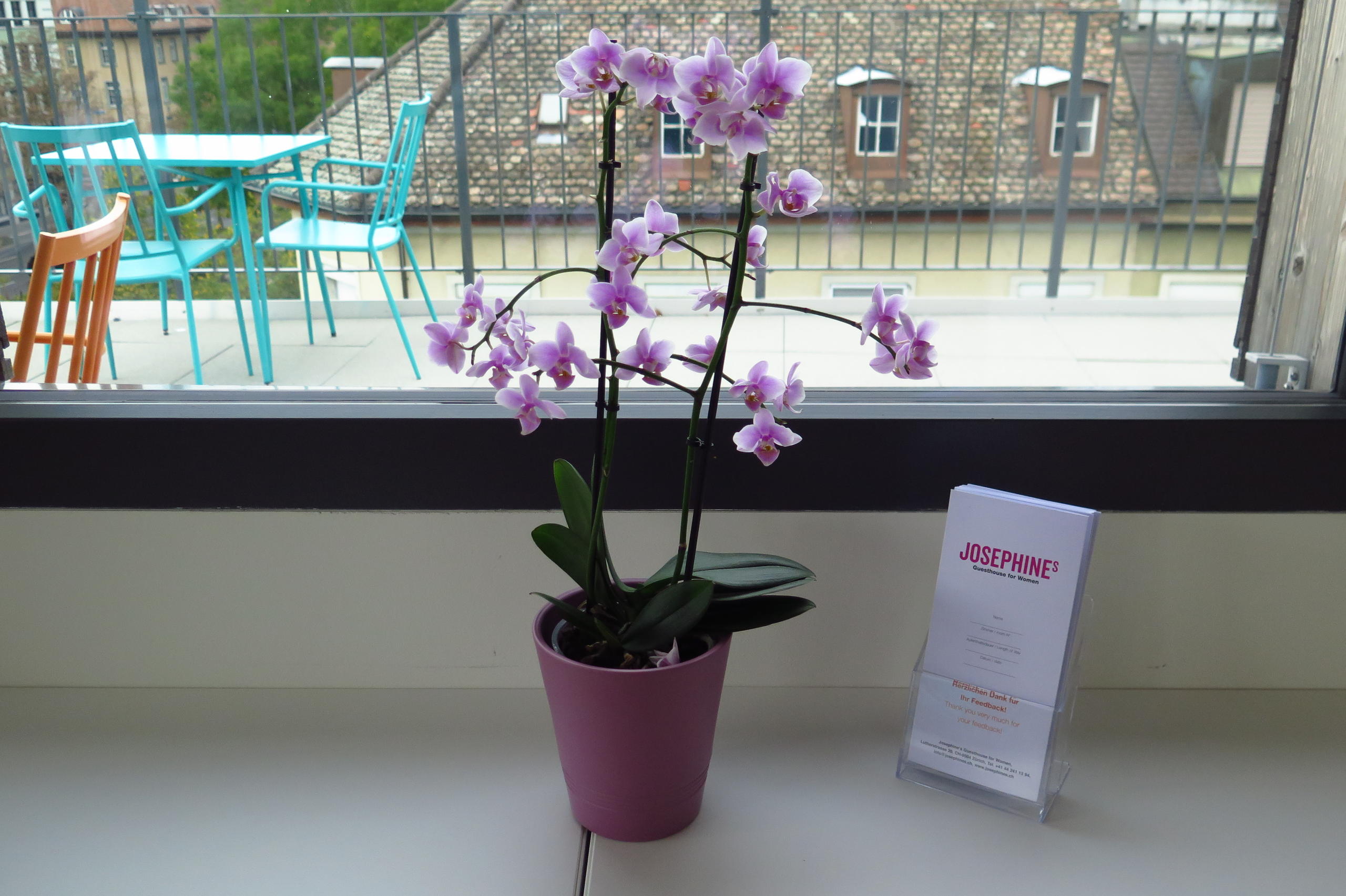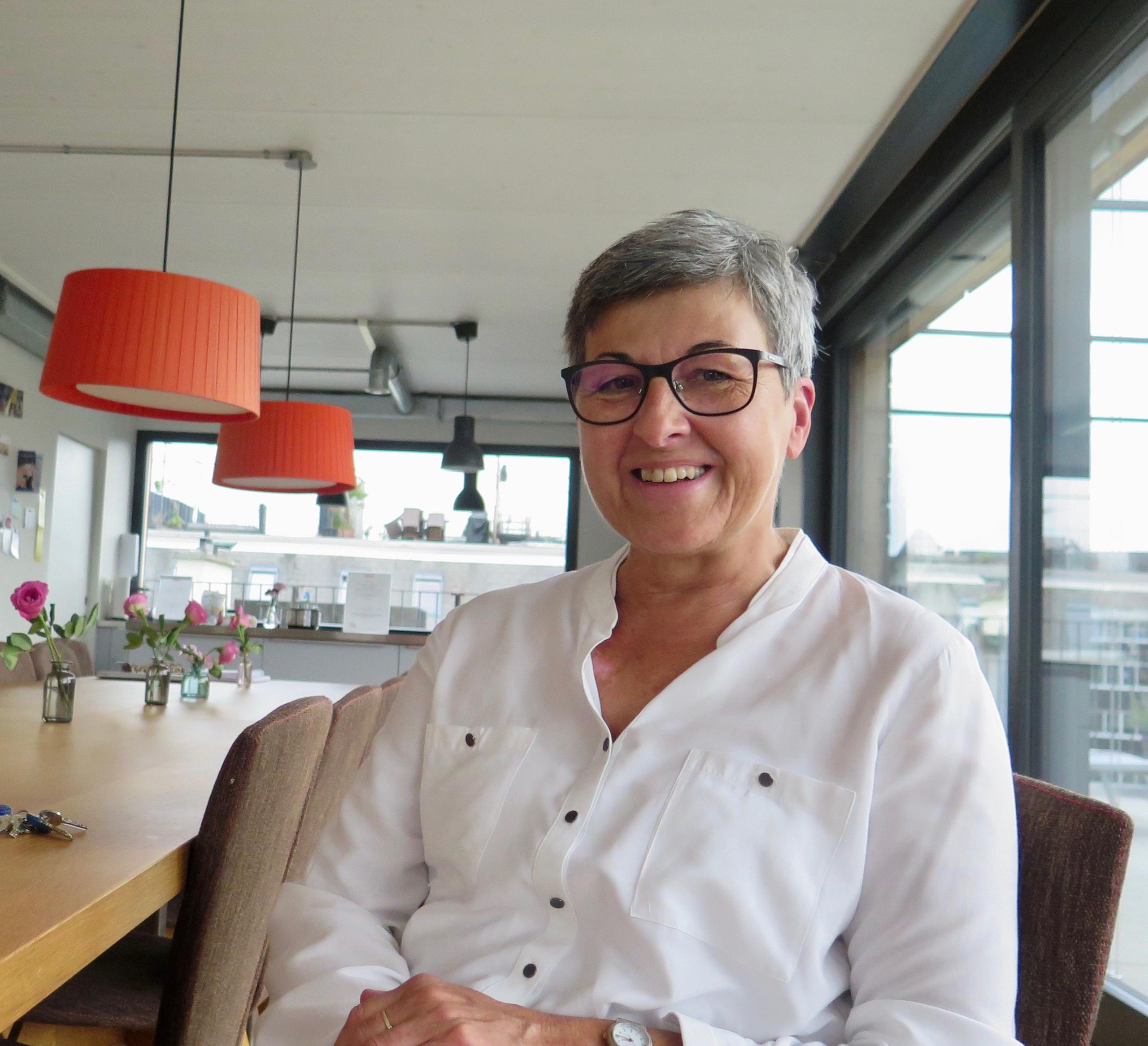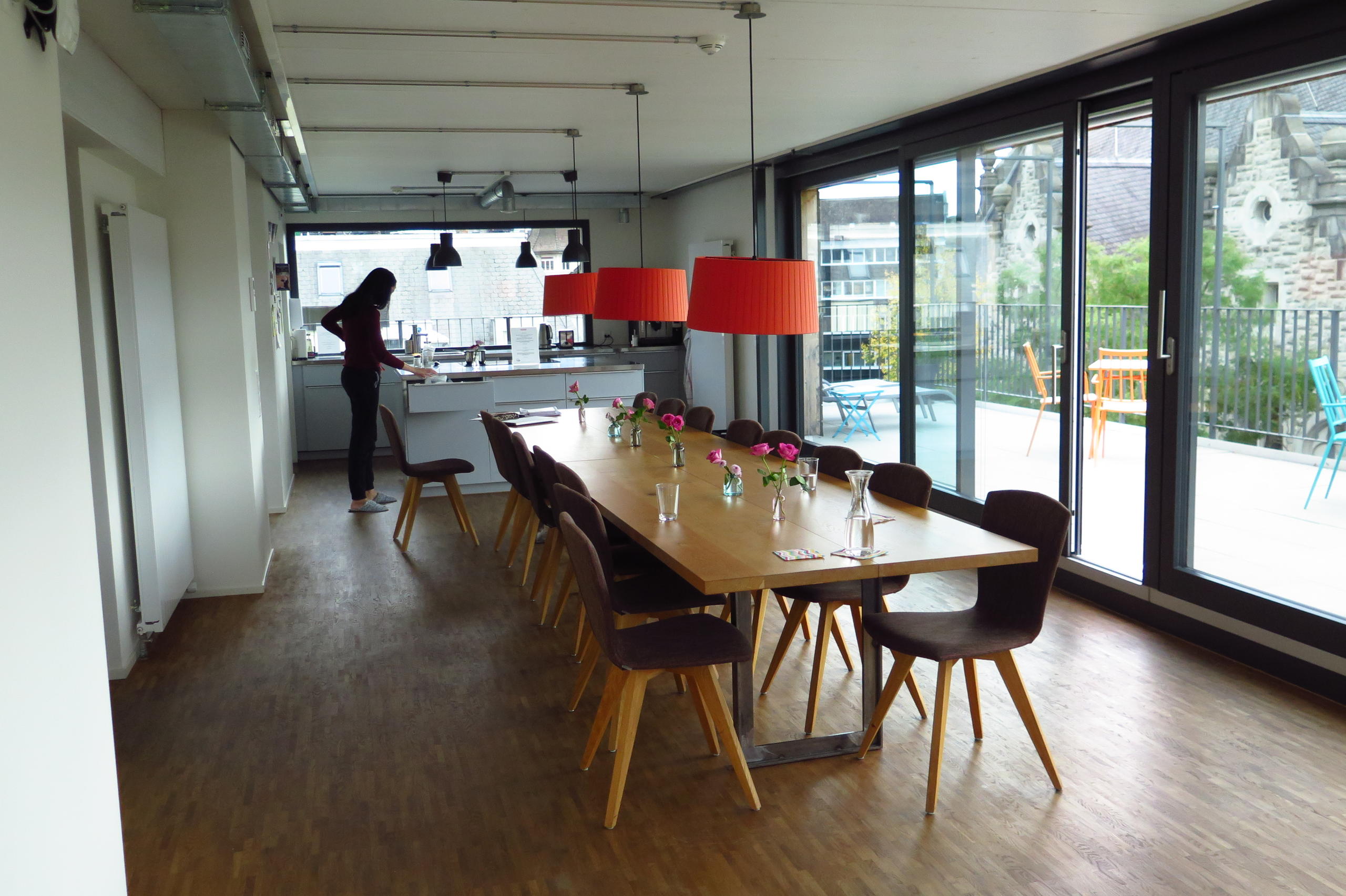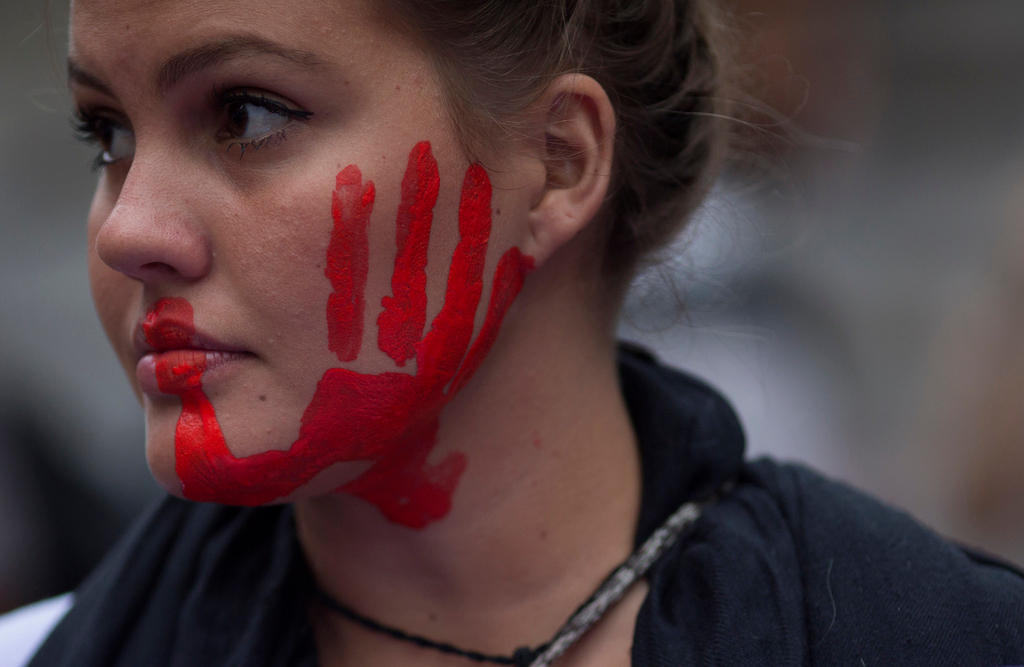‘We want to give women a home’

Proprietors of a Zurich guest house with a long history of sheltering women in need hope that modernisation and a sense of community will allow them to continue to fill a housing gap in the pricey Swiss city.
Only a single word painted on a blue-grey wall points the way to “Josephine’s”. The entrance is unpretentious, the reception simple, yet inviting and colourful. There are few signs of all that has gone on in this place over more than a century.
The “Töchterheim St. Jakob”, a boarding house for women that shares its name with the church across the street, was founded here in 1869. Fifty years later it was taken over by the Marta Association, a branch of the International Association of Friends of Young Women founded in 1877. The “Pension Lutherstrasse”, as the guest house became known, served as a refuge for women who had moved from the countryside to Zurich in the search for employment during Switzerland’s period of industrialisation. As part of the morality movement of the early 20th century, the guesthouse was intended not only to offer women affordable accommodation, but also to prevent them from falling into prostitution, either out of financial necessity or under coercion.
“Do we really only want to offer good and cheap accommodation to our young girls?” asked the president of the Marta Association at the opening ceremony of the newly built women’s pension in 1928.
“No, we want more. We want to give them a home, even if it can only be a temporary one. It should be a place where they feel safe.”
Committed to women
The freshly renovated and newly christened “Josephine’s Guesthouse for Women” is still a haven for women who visit Switzerland’s largest city as students, as tourists or for business and for women who need a place to find peace and a new direction after a crisis.
The spirit of the former establishment still lives on in this modern version. Josephine’s is still reserved for female guests who can book rooms for a night or a few months. Apart from a male technician, only women work there. Otherwise, men are only allowed as far as the reception desk. Named after the British women’s rights campaigner and social reformer Josephine Butler , the guest house remains dedicated to the social ideals of its namesake: up to 10 of the 38 rooms are reserved for women in or emerging from crisis situations.
Verena Kern Nyberg manages the not-for-profit Frauenhotel company, in charge of Josephine’s as well as the Ladys First and Marta hotels in Zurich. She is convinced that Josephine’s “captures the spirit of the times” through its popular long-term rentals, as well as its fostering of female community and its commitment to women in need. Josephine’s always reserves a few rooms in the cheapest price category for these women, as “emergency situations cannot be planned”, says Kern Nyberg. On average, 8 to 10 women occupy these rooms, often with their young children.
‘Uncomplicated, fast and no deposit’
Particularly in Zurich, where finding affordable rental accommodation is a challenge, Josephine’s fills a gap.
“Here they get temporary accommodation, fast, without complications and without having to pay a deposit or compete against 50 other tenants for an apartment,” explains Kern Nyberg.
Guest Relations Manager Doris Albisser is convinced that “there could be more such guest houses and they would all be filled”. Josephine’s works, she says, “because people function independently here”.
The kitchen and laundry room are available to all guests. Whether a woman is in Zurich for a week and would rather cook than eat alone in a restaurant, or she has been referred by the city’s social services department, such facilities allow guests to meet their own needs. (Zurich’s social services cover lodging costs for residents who need emergency accommodation).

Diverse life stories
“Many don’t talk about the situation that brought them here. They share fragments. We rarely know their whole life story,” says Albisser.
These life stories are as varied as the women themselves. One woman first fled domestic violence to Zurich’s shelter for battered women and is now using her time at Josephine’s to plan her next steps. A pregnant foreign student was kicked out of a shared flat. Another woman has to reorient her life after a prison sentence, and a rejected asylum seeker and her infant are waiting to be deported.
Some of the hotel guests ask questions after reading about the guesthouse’s social commitment on its website and or talk to one of the women at the daily breakfast buffet. The paying guests’ reactions are usually positive, says Albisser. She has developed a feeling for whether a woman “fits into the house and will abide by the rules”.
Serious violations of the house rules can lead to dismissal. For example, a woman who repeatedly smuggled a man into her room and got into a fight with him there was dismissed without notice.
Josephine’s community
The key to Josephine’s’ success is maintaining a balance between an economically viable hotel and a “place for women who have had a streak of bad luck”, says Kern Nyberg. She emphasises that the guest house wants to maintain a diverse community of women who have an open ear for each other’s concerns.
Ultimately, says the manager of Josephine’s, the guest house is defined more by the community found within its walls than by its offer of refuge for women in need. She is delighted with the positive feedback from those who stay in the hotel portion of the facility.
“They keep telling us what cool women they meet at Josephine’s.”

Staying at Josephine’s
A room for a woman in need at “Josephine’s Guesthouse for Women” costs between CHF1,600-2,000 ($1,608-$2,009) per month, including breakfast and wireless internet access. Women with children are accommodated in the larger rooms. The women are allowed to stay at Josephine’s for a maximum of six months.
The costs are covered by the Social Services of the City of Zurich (SOD), which has signed a framework agreement with Josephine’s management. Although some of the women are employed, their income often does not cover their living expenses. The aim is to prevent the women from becoming homeless and to give them time to figure out their next steps, explains the SOD in a written statement.

In compliance with the JTI standards
More: SWI swissinfo.ch certified by the Journalism Trust Initiative



You can find an overview of ongoing debates with our journalists here. Please join us!
If you want to start a conversation about a topic raised in this article or want to report factual errors, email us at english@swissinfo.ch.